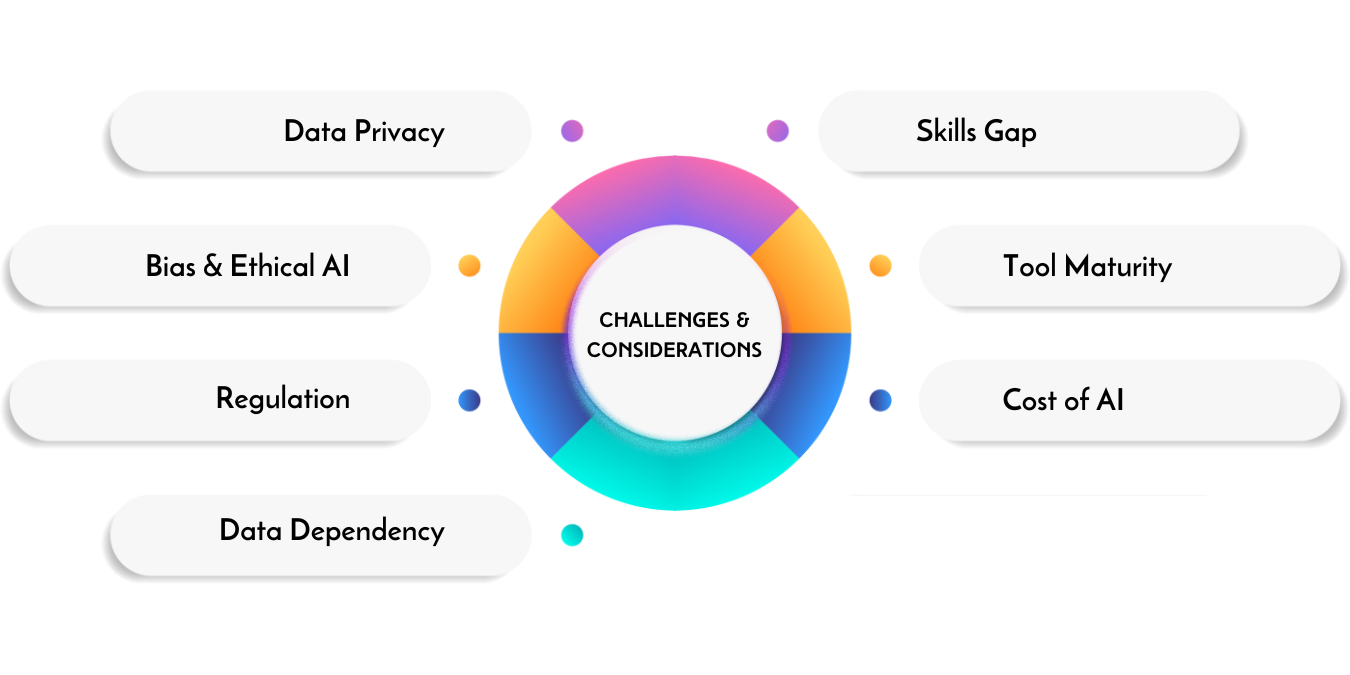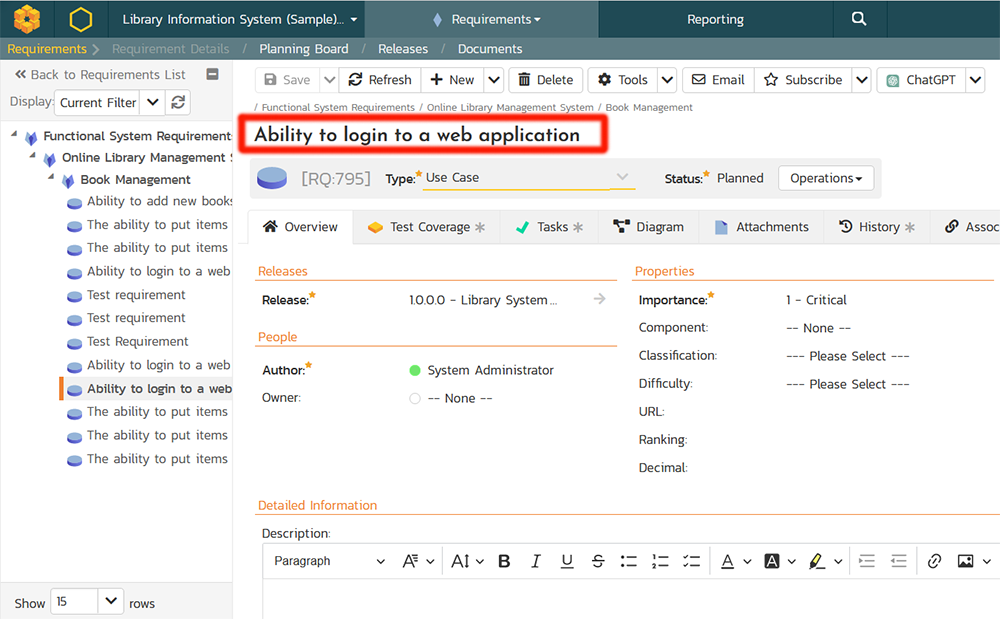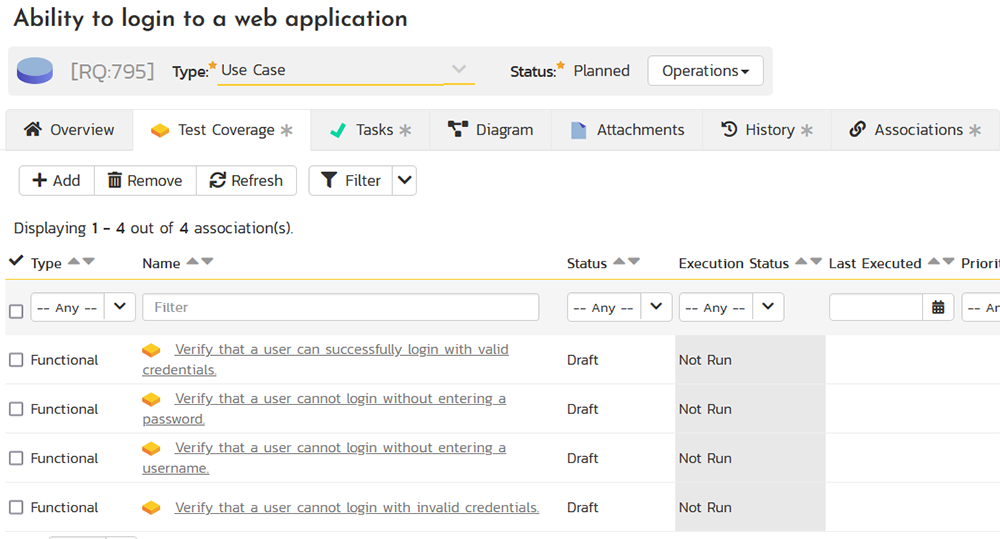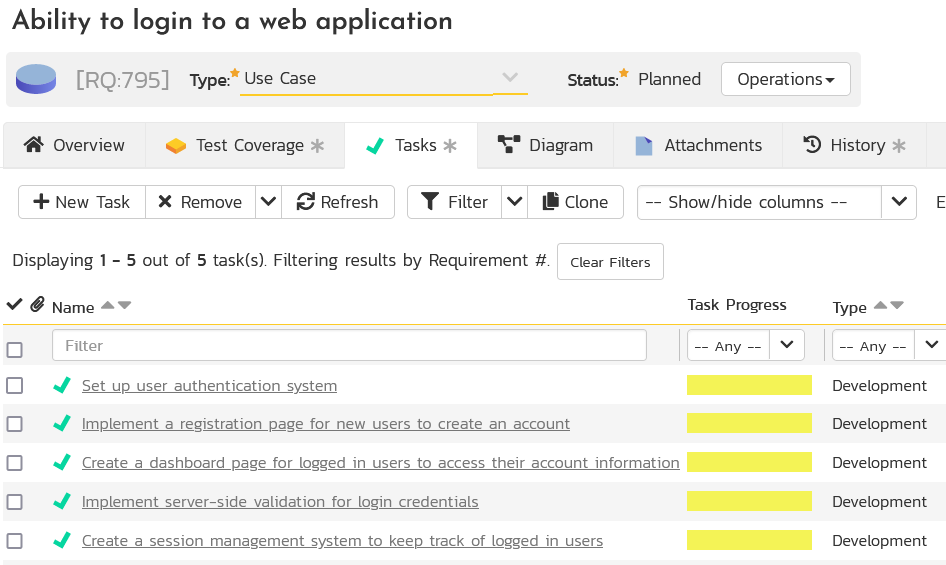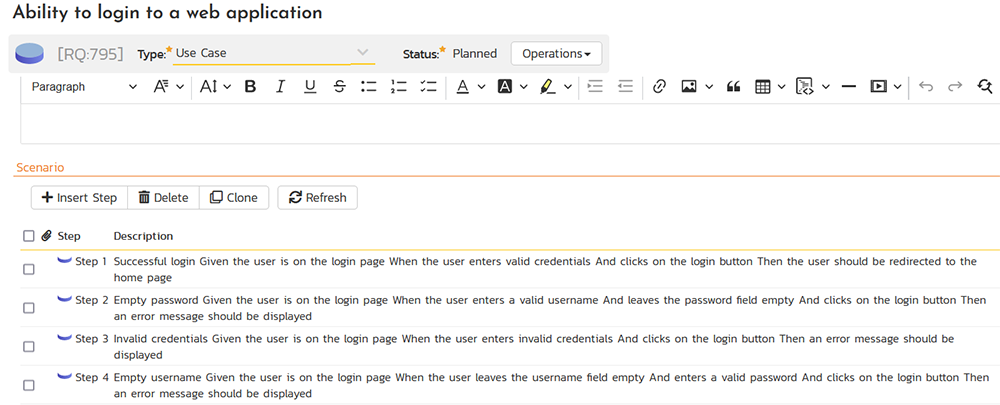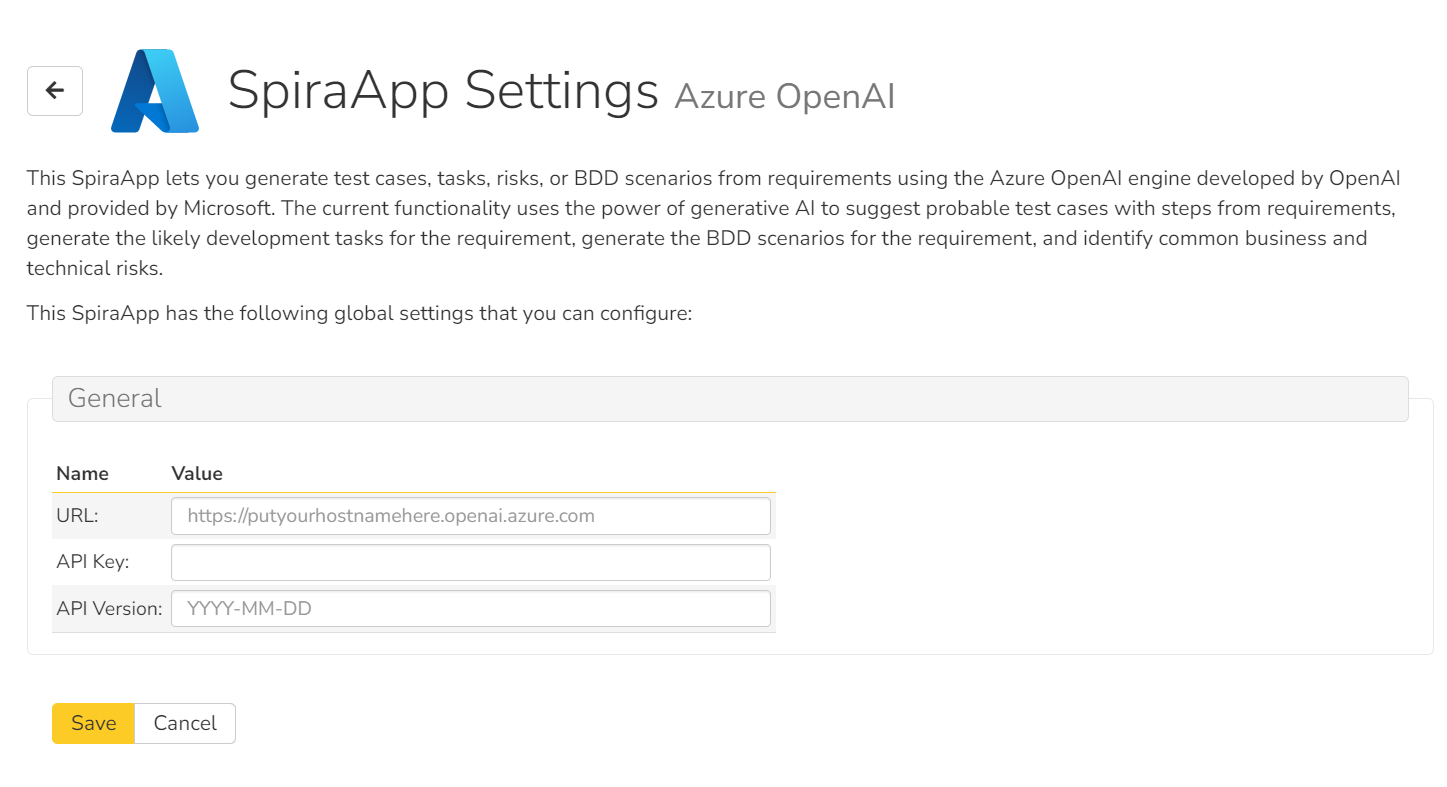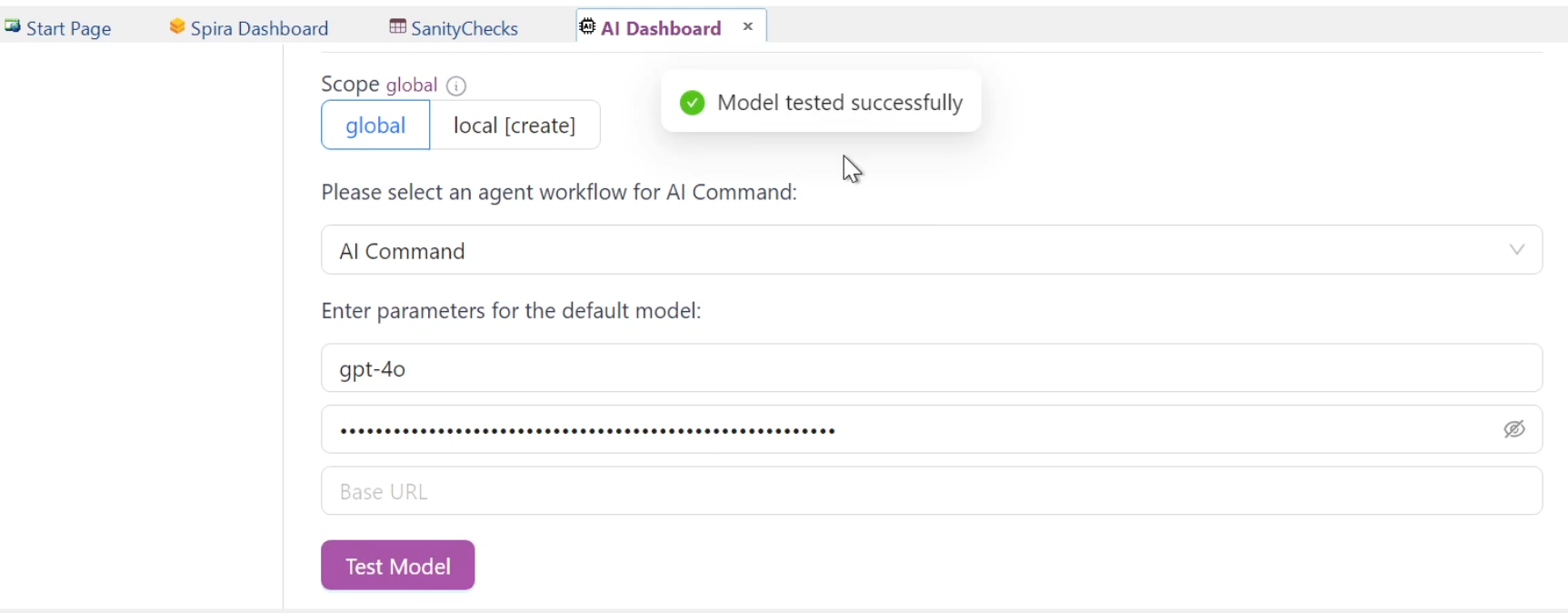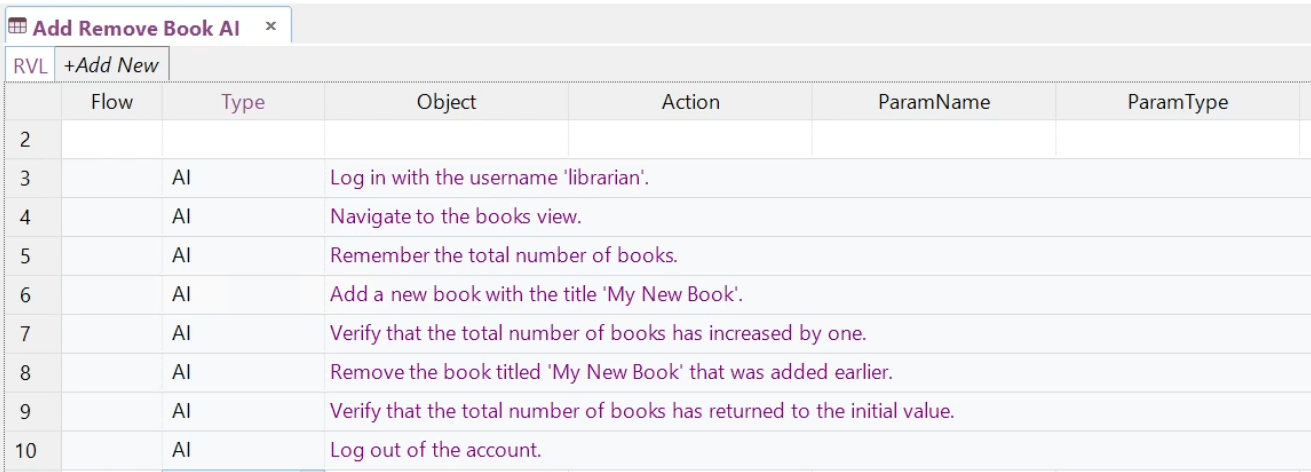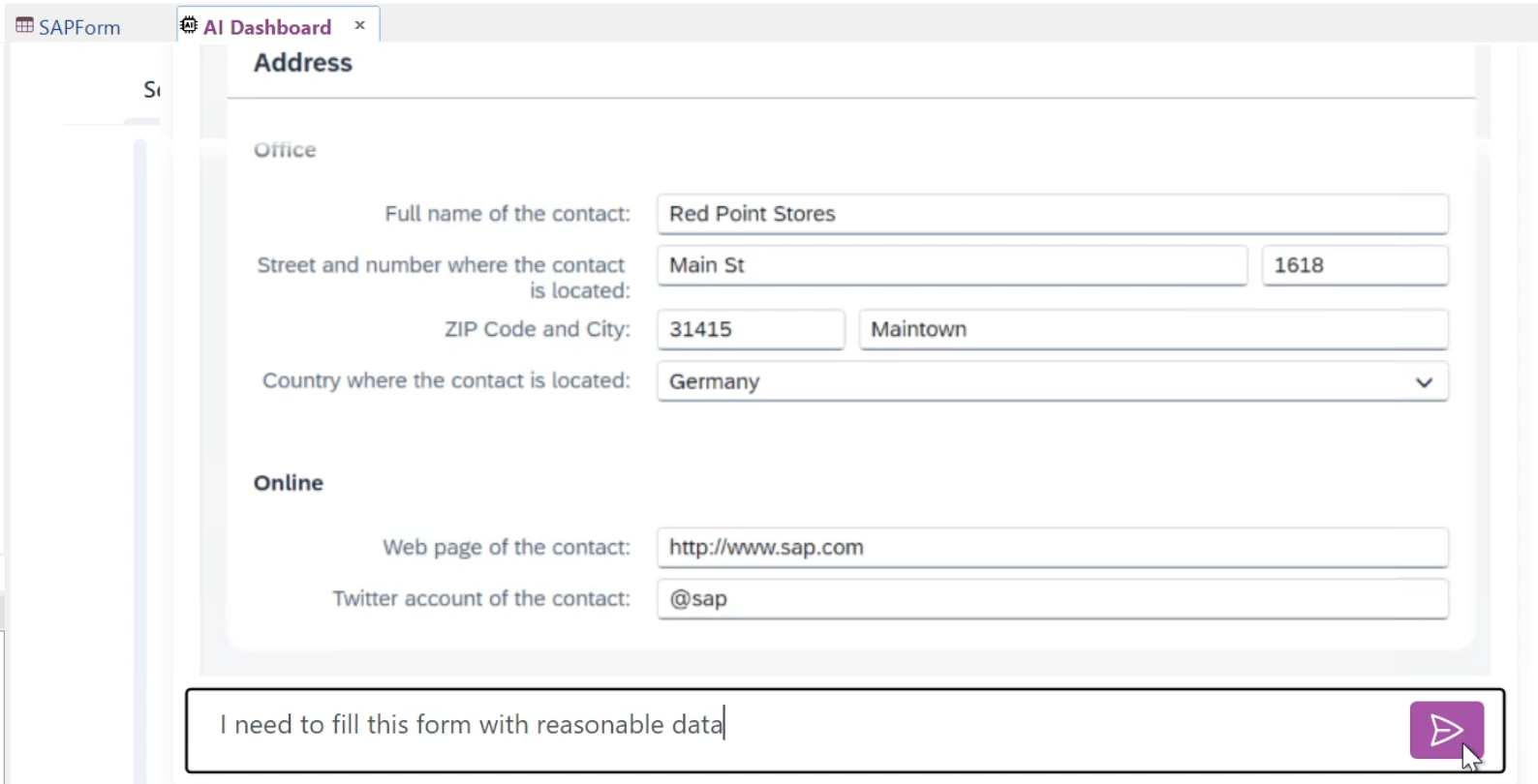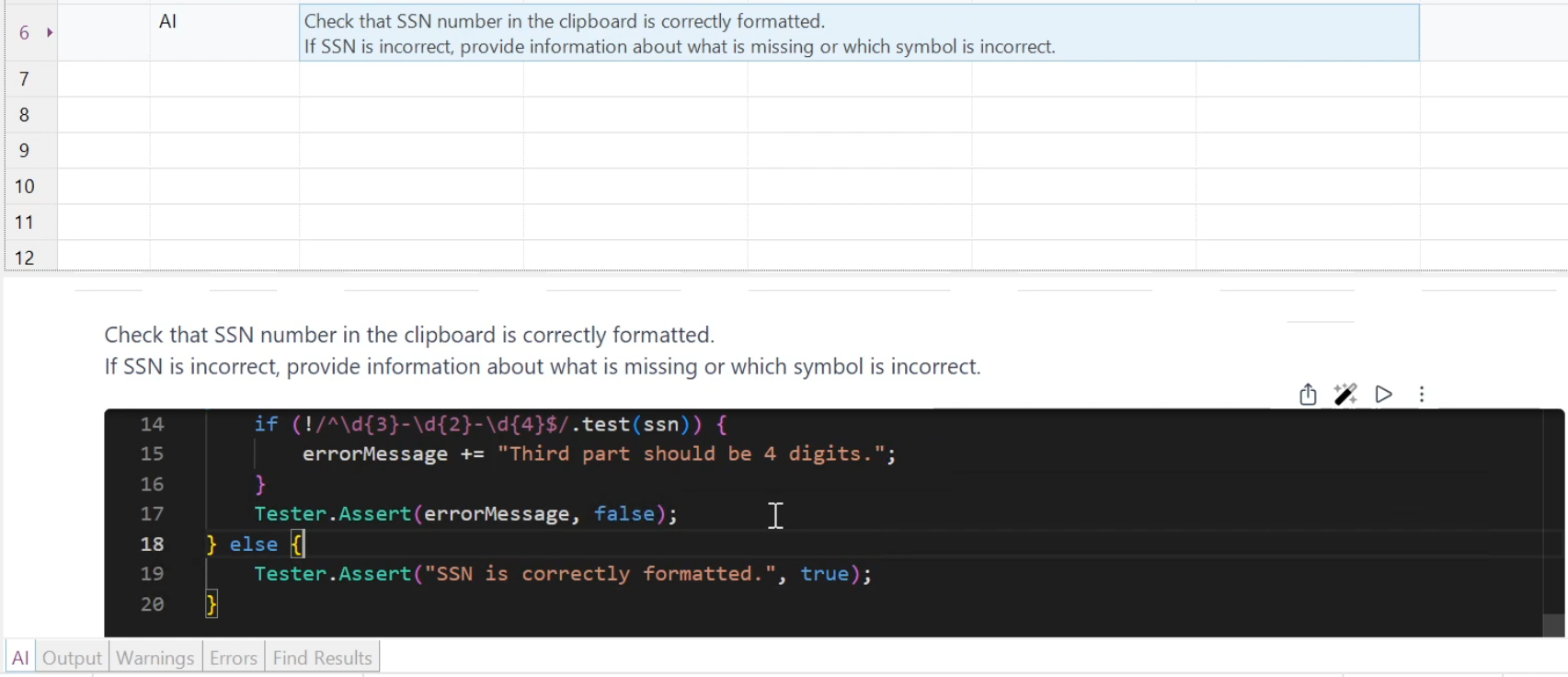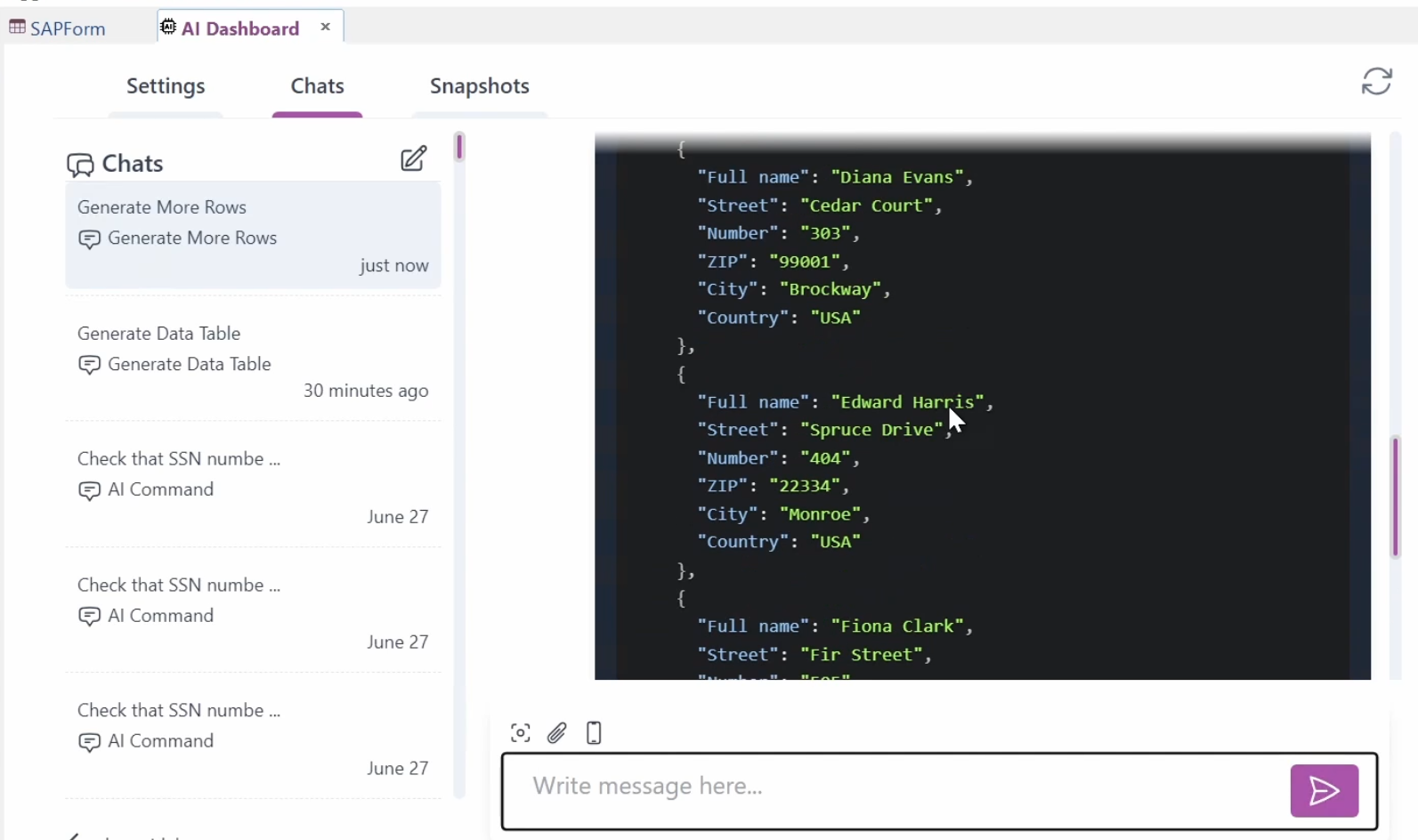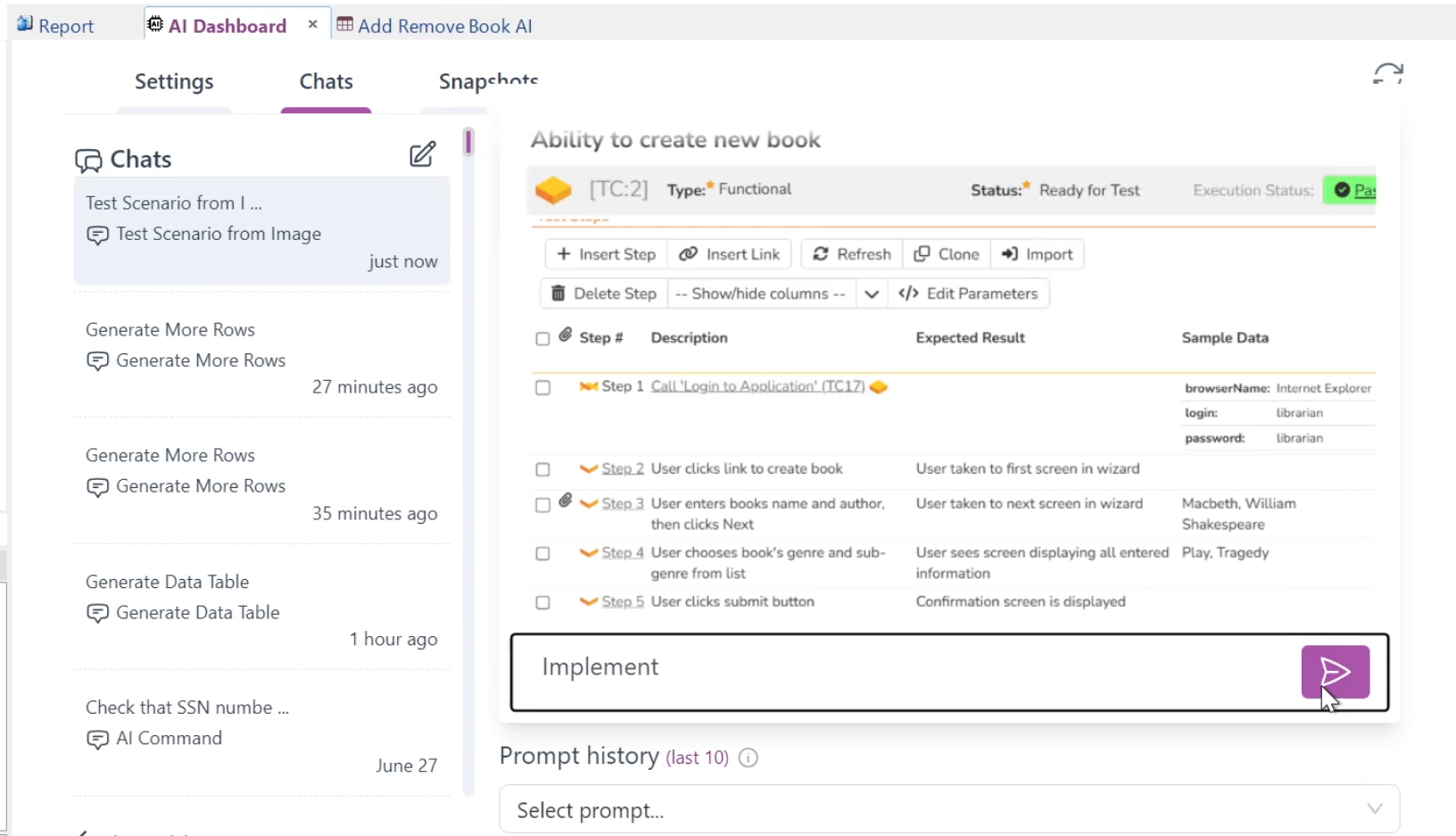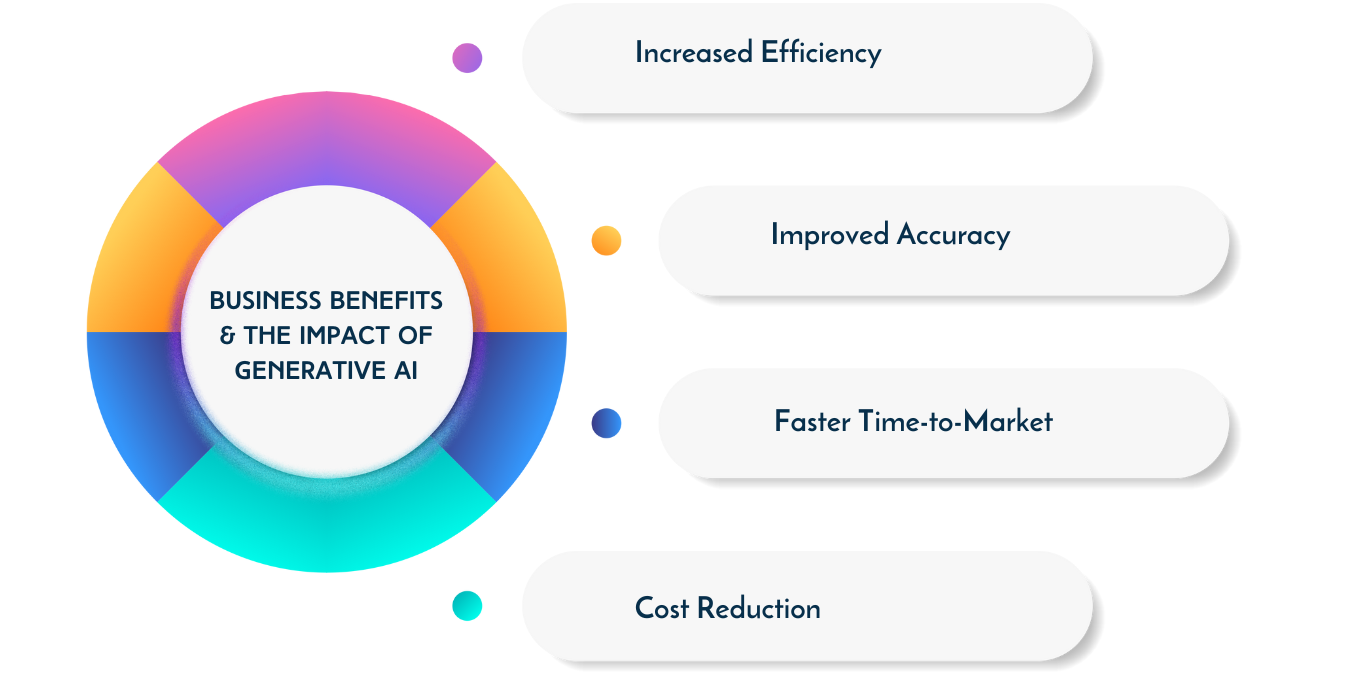The GenAI Leap: Inside Inflectra's Cutting-Edge AI Solutions for Smarter Software Delivery
Executive Summary:
In 2024, Inflectra leads the charge of AI-powered software development and testing with SpiraPlan and Rapise. These tools leverage advanced AI capabilities to streamline processes, enhance decision-making, and automate manual tasks across the entire software development lifecycle. This whitepaper explores how Inflectra's SpiraPlan and Rapise leverage artificial intelligence to revolutionize project management and test automation. We examine the key AI-powered features, their practical applications, and the resulting benefits for organizations across various industries.
Introduction
Artificial intelligence has become a cornerstone of innovation across industries, particularly in software development and testing. Rapid advancements in machine learning (ML), natural language processing (NLP), and generative AI have expanded the capabilities of AI-driven tools, revolutionizing software delivery processes.
Inflectra, a leader in software testing and project management solutions, has integrated cutting-edge AI technologies into its core products: SpiraPlan and Rapise. These tools are designed to meet the evolving needs of modern software development teams, from startups to enterprise-level organizations.
AI in Software Development: Current Landscape
Key Drivers of AI Growth:
- Generative AI: Tools like OpenAI’s GPT models have enabled groundbreaking developments in AI's ability to generate code, automate content, and enhance customer interactions. Companies like Inflectra are leveraging these tools to automate critical functions, such as test case generation, requirement management, and risk identification, as seen with SpiraPlan’s AI capabilities.
- AI in Software Testing: AI's role in software development has expanded significantly. AI tools are now being used to automatically generate test cases, identify defects, and predict risks, helping organizations maintain the quality and performance of their applications at speed. Companies like Inflectra are leading the way by incorporating AI into their platforms, such as SpiraPlan and Rapise, to streamline project management and test automation processes.
- Exponential Growth in Data Availability: The vast amounts of data generated by individuals, devices, and organizations have been a significant catalyst for AI's growth. This data, combined with improved processing power and cloud storage, has enabled AI algorithms to become more sophisticated and accurate.
Challenges and Considerations For AI Implementation:
While AI offers powerful advantages, several challenges remain:
- Data Privacy: Safeguarding sensitive data is critical, especially in industries like healthcare and finance, where GenAI must balance innovation with strict privacy standards.
- Bias and Fairness: AI models can inherit biases from their training data, raising concerns about fairness and accountability. Ensuring diverse data and frequent audits is key to ethical AI use.
- Regulation: Adoption in regulated industries requires strict compliance with data protection laws.
- Data Dependency: GenAI’s effectiveness depends on quality data. Poor or limited data can weaken AI accuracy, particularly in sensitive environments.
- Skills Gap: Leveraging AI requires a workforce skilled in machine learning, data science, and AI technologies. The shortage of these skills continues to be a barrier to full-scale AI adoption. Upskilling teams is essential to maximize GenAI’s potential.
- Tool Maturity: The AI landscape is evolving. Organizations must choose tools wisely to ensure they meet performance and regulatory needs.
- Cost: GenAI tools come with significant costs. A careful cost-benefit analysis is needed to justify investments.
Inflectra's AI Solutions: An Overview
SpiraPlan and Rapise represent Inflectra's answer to the GenAI revolution in software development and quality engineering. Inflectra has integrated GenAI into its core products, transforming how the company tests, develops and manages software. SpiraPlan and Rapise enhance testing automation, streamline project management, and uphold high-quality standards, allowing users to stay ahead in a fast-paced digital world.
This section dives into the GenAI capabilities of SpiraPlan and Rapise, showcasing how they drive efficiency, scalability, and compliance across the software development lifecycle.
AI-Powered Features in SpiraPlan
SpiraPlan is Inflectra’s project management and test management platform that integrates GenAI to automate key project and testing tasks. These AI-driven features are designed to accelerate the creation of requirements, tasks, test cases, and risk assessments, thereby improving efficiency and accuracy throughout the development process.
How Does SpiraPlan Enhance Requirements Management Using GenAI
SpiraPlan’s AI-driven tools allow you to transform project requirements into a complete set of project artifacts with just a few clicks. Whether you're drafting user stories, features, or epics, SpiraPlan can instantly generate corresponding test cases, tasks, risks, and BDD scenarios that would typically take hours to manually produce.
Generative AI Using ChatGPT Plugin
The SpiraApp for ChatGPT inside SpiraPlan gives you an array of options to auto-generate project artifacts directly from a requirement. For example, when a requirement such as "As a user, I want to be able to log in to a web application" is entered, SpiraPlan's AI plugin can automatically create test cases for successful and failed login scenarios, development tasks for the frontend and backend, potential risks like security vulnerabilities, and Gherkin BDD scenarios.
Automated Test Case Generation
By leveraging OpenAI's models, SpiraPlan generates comprehensive test cases that can be tailored to your specific project. For example, the system can create positive and negative login test cases with detailed descriptions, expected results, and sample data.
The screenshots below display the list of test cases that have been automatically generated from the relevant requirement.
Screenshot: Auto-generated test cases from a requirement inside SpiraPlan.
Automated Task Creation
SpiraPlan uses AI to generate typical development tasks for any given requirement. Whether it's tasks related to frontend design or backend database management, AI ensures that your development workflow is streamlined and aligned with project goals.
The screenshot below showcases the results of the system generating development tasks.
Risk Identification
SpiraPlan’s AI capabilities extend to risk management, helping users identify security vulnerabilities, compliance issues, performance bottlenecks, and user experience risks. By proactively surfacing these risks, teams can take corrective action before they become problems.
BDD Scenario Generation
The AI plugin simplifies the creation of Gherkin scenarios for BDD approaches. The plugin generates positive and negative scenarios in the Given-When-Then format, speeding up the testing phase and ensuring complete test coverage.
The screenshot below illustrates the structured Gherkin scenarios based on user-defined requirements.
Screenshot: AI-assisted creation of Gherkin scenarios for BDD in SpiraPlan.
Secure AI Solutions for Regulated Industries
For organizations that handle sensitive data and require high levels of security, SpiraPlan offers a private Azure OpenAI integration. This allows customers to host their AI models inside their private Azure cloud environment, ensuring complete control over data without sacrificing the benefits of AI. This solution caters to industries like finance, healthcare, defense, and life sciences that require stringent security measures.
The Azure OpenAI SpiraApp replicates the functionality of the ChatGPT assistant but operates within the user’s secure Azure environment. It helps generate all essential project artifacts while ensuring the data remains private and fully compliant with regulatory standards.
Planning Ahead: Future GenAI Enhancements in SpiraPlan (2024-2025)
At Inflectra, we are continuously enhancing our AI offerings to provide even greater value to our users. Here’s what’s on the horizon for SpiraPlan:
- Automatic generation of requirements from product descriptions.
- More detailed test cases tailored to specific system needs.
- AI assistants that support a wider range of project management and testing tasks.
- Flexible LLM options: including access to models like LLAMA and Claude through AWS Bedrock.
Unlock the future with SpiraPlan, powered by AI.
Start with a 30-day free trial of SpiraPlan today!
Spira/SpiraApss AI Documentation is available here.
Cutting-Edge AI-Powered Features in Rapise
Rapise is Inflectra’s powerful test automation platform that integrates GenAI to enhance the testing of web, desktop, and mobile applications. With AI-driven test generation, Rapise helps teams automate and streamline their testing processes.
Rapise has smart use of AI to reduce unnecessary token spending.
How Does AI-Driven Command Execution Work In Rapise?
Rapise AI allows the execution of natural language commands that resemble manual test descriptions. These commands are interpreted and transformed into functional test scripts, minimizing the need for manual script writing. The AI engine generates and implements the necessary code based on user-provided prompts, bridging the gap between manual test processes and automated workflows.
The screenshot below demonstrates how Rapise processes and executes plain text commands to streamline the automation of manual tests.
Screenshot: Code generation and implementation based on user prompts in Rapise AI.
How Does Integration with OpenAI and Azure AI Work in Rapise?
Rapise AI supports seamless integration with OpenAI and Azure AI via API key authentication, enabling advanced AI capabilities within the test environment. These integrations allow the initialization of AI models for test generation and enhancement, ensuring a streamlined connection to the most powerful language models for test automation.
The screenshot below highlights how Rapise enables users to configure connections, test the integration, and initialize AI models for enhanced automation capabilities.
Screenshot: API key integration and model initialization interface in Rapise AI.
How Does Rapise Handle Errors and Code Correction?
The platform features built-in error handling, utilizing a feedback loop facilitated by an AI-powered chat interface. When errors are detected during script execution or generation, the user can correct the code by providing an error message to the chat interface. Usually, there is more than one solution to each problem, and the chatbot may suggest different ones.
The screenshots below demonstrate how Rapise detects issues during script execution and provides real-time feedback and error corrections through its intuitive chat interface.
Screenshot: In-built error handling and feedback loop through chat in Rapise AI.
Screenshot: Error message handling and code revision generation in Rapise AI.
How Does Rapise Improve Automation with Contextual Learning?
Rapise AI implements machine learning algorithms that adapt to user edits and corrections. By learning from manual adjustments to scripts, the AI progressively improves its future code suggestions, refining the automation process over time. This contextual learning ensures that knowledge is shared across the test framework, enhancing consistency and reducing the likelihood of repetitive errors.
The screenshot below illustrates how Rapise learns from previous modifications and applies this knowledge to enhance the accuracy of subsequent code recommendations.
How Does Rapise Automate Manual Test Cases?
Rapise AI streamlines the conversion of manual test case descriptions into automated scripts. This conversion is done step-by-step, with the generated scripts integrated directly into the existing test framework. The AI-driven automation enables efficient scaling of manual tests into full automation with minimal user input.
The screenshot below demonstrates how manual test case inputs are transformed step-by-step into fully executable scripts within the Rapise framework.
Screenshot: Manual test case conversion to automated scripts in Rapise AI.
The screenshot below highlights how Rapise enables stepwise script generation and its incorporation into the testing infrastructure.
Screenshot: Step-by-step script generation and integration in Rapise AI.
How Does Rapise Handle Form Data Generation and Advanced Validation?
Rapise AI can capture form images and generate the corresponding input data required for testing. It facilitates the construction of functions that validate form inputs, including complex validations such as checking the format of social security numbers. This capability enhances the accuracy and reliability of data-driven test scenarios.
The screenshot below demonstrates how Rapise identifies form elements and produces the required data to complete and validate the forms during testing.
Screenshot: Form image capture and input data generation in Rapise AI.
Screenshot: Advanced validation function implementation in Rapise AI, including social security number format validation.
How Does Rapise AI Manage Data in Tables?
With its advanced AI capabilities, Rapise supports the generation of data tables containing diverse values based on specific testing requirements. Rapise AI can automatically generate additional rows of data tailored to user specifications, which can then be utilized in test scripts to ensure comprehensive coverage of various test cases and scenarios.
The screenshot below demonstrates how Rapise creates and manages data tables, ensuring that the test cases are executed with a variety of input values to cover multiple scenarios.
Screenshot: Data table generation with diverse values in Rapise AI.
The screenshot below illustrates how Rapise enables users to customize and extend data sets, ensuring that testing scenarios can be expanded with precision.
Screenshot: Data row generation based on user specifications in Rapise AI.
How Does Rapise AI Achieve Legacy Test Case Conversion?
One of the standout features of Rapise AI is its ability to translate manual test cases from legacy formats—including PDF documents, databases, Excel files, and Spira—into modern automated scripts. This feature allows organizations to preserve and repurpose their historical test assets, ensuring they remain valuable in the context of updated automation processes.
The screenshot below demonstrates how Rapise automates the migration of legacy test assets, preserving their functionality while modernizing the test execution process.
Screenshot: Legacy test case translation from PDF, databases, Excel, and Spira into automated scripts in Rapise AI.
Automate with Confidence: Try Rapise's AI-Powered Test Automation for free for 30 days!
Rapise AI Documentation is available here
Business Benefits and Impact of Gen AI
- Increased Efficiency: AI-driven automation significantly reduces time spent on manual tasks, allowing teams to focus on strategic activities.
- Improved Accuracy: AI-generated artifacts and scripts minimize human error and ensure consistency across projects.
- Faster Time-to-Market: Streamlined processes and automated workflows accelerate development cycles and product releases.
- Cost Reduction: By automating time-consuming tasks, organizations can optimize resource allocation and reduce overall project costs.
Inflectra's AI Solutions and The Broader Industry Landscape
Inflectra's AI-powered tools, SpiraPlan and Rapise, stand out in the competitive landscape of AI-enabled software testing tools. Here's how they compare to other solutions on the market:
- Comprehensive AI Integration: Inflectra offers AI integration across both project management (SpiraPlan) and test automation (Rapise), providing a unified AI-enhanced experience. Market competitors mainly focus on SDLM/project management or test automation, but rarely both. Consider Jira (Atlassian) for project management or Selenium for test automation, which don't typically offer comprehensive AI features across various domains.
- Requirements to Artifacts Generation: SpiraPlan can automatically generate test cases, tasks, risks, and BDD scenarios from requirements. Tools like VersionOne or Rally (now part of Broadcom) offer some level of requirements management, but their AI capabilities for automatic artifact generation are generally less advanced or non-existent.
- Risk Identification: SpiraPlan uses AI to identify potential risks and work out the best mitigation strategies. This feature is unique in the market, giving Inflectra an advantage in risk management.
- AI-Driven Test Automation: Rapise offers natural language command execution, converting manual test descriptions into functional test scripts. Testim.io and Functionize offer similar capabilities, but Rapise's integration with project management functionality in SpiraPlan gives it an edge in terms of end-to-end workflows.
- Contextual Learning: Rapise implements machine learning algorithms that adapt to user edits and corrections. Adaptive AI is becoming more common in tools like Testim.io and Mabl, but Inflectra's application across testing and project management is distinctive.
- Security and Compliance: SpiraPlan's Azure OpenAI integration for private cloud deployment sets it apart, especially for industries with strict data security requirements. This feature is not prominently mentioned for other tools on the market.
- Legacy Test Case Conversion: Rapise can convert legacy test cases from various formats into modern automated scripts. While some competitors offer import capabilities, Rapise's AI-driven conversion from multiple legacy formats is a true standout feature.
- Self-Healing Scripts: Rapise features self-healing capabilities for test scripts. In Rapise, AI-driven scripts adapt to UI changes. Tools like Testim.io and Mabl also offer self-healing scripts, making this a competitive feature across advanced test automation tools.
- Flexibility and Scalability: Rapise's multi-platform support (web, desktop, mobile) is preferable over Katalon and Eggplant Test, as it offers flexibility for diverse testing needs.
- Ease of Use: While tools like Leapwork and Testsigma emphasize codeless or low-code approaches, Rapise balances its visual language (RVL) with ease of use and powerful scripting capabilities, catering to technical and non-technical users.
As we've explored the capabilities of Rapise and SpiraPlan, it's important to consider the broader context of AI-enabled software testing tools in the industry. Check out our list of top AI-powered testing tools available in 2024.
Experience the power of AI-driven software delivery. Book a personalized demo of Inflectra's solutions today! Contact us at sales@inflectra.com
